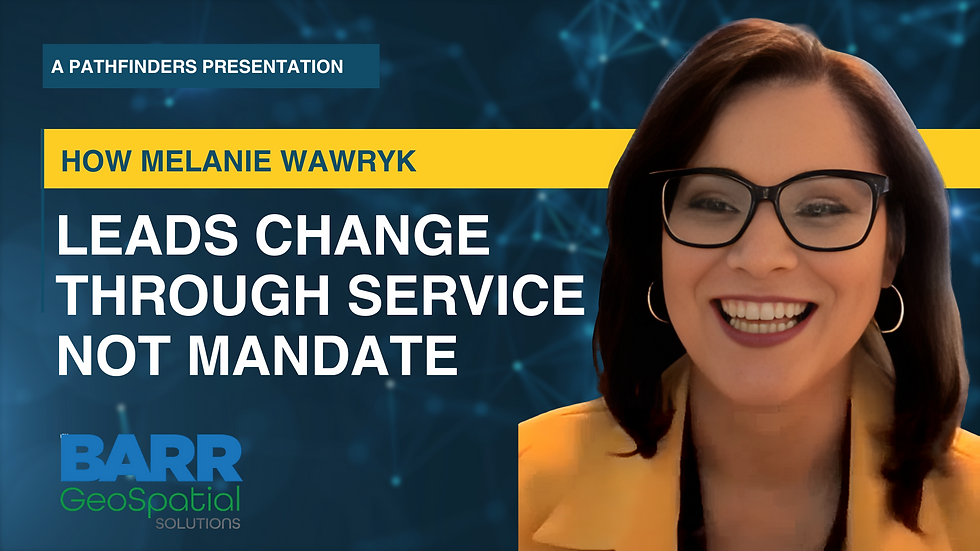Steve Mark: Strengthening Community Through Data
- Jeff Lamb

- Jan 31
- 2 min read
Updated: Aug 29
Steve Mark doesn’t just see maps—he sees connection. For nearly 15 years, he’s helped knit together a fabric of collaboration across British Columbia through his work with the Integrated Cadastral Information Society (ICI Society), a nonprofit organization rooted in the unglamorous but essential world of spatial data.
“Our job is to collect and share data about land parcels,” Steve explained. “But what we’re really doing is helping governments, utilities, and now First Nations make informed decisions—together.”
From the outside, that might sound technical. But for Steve, it’s about people. It’s about ensuring communities—from city planners to remote First Nations—have access to the same map, so everyone can chart a better path forward. “I find it very rewarding,” he said, reflecting on the society’s work helping Indigenous communities manage their own spatial data, with an eye toward sovereignty and independence.
When Steve joined the society in 2010, its purpose had already been shaped by a simple but powerful idea: data works better when it’s shared. Back in 2001, BC’s major utility companies and government agencies faced a huge challenge. They needed consistent land data, but the province’s 188 local governments all maintained their own versions. That meant separate agreements, mismatched formats, and endless duplication.
Rather than go it alone, these organizations created a new kind of collective. “None of the data we collect is mandated,” Steve explained.
“Every organization involved is there because they recognize the economies of scale in sharing.”
The result was more than just a database—it was a community. A “society,” as Steve puts it, built on trust and cooperation. Over time, that network has only grown. Today, ICI Society distributes high-quality land data to hundreds of member organizations, including local governments, utilities, the provincial government, and most recently, Indigenous communities.
But this path hasn’t always been simple. As new players like the Land Title and Survey Authority entered the field, some wondered if ICI’s role would shrink. “When LTSA built ParcelMap BC, they didn’t start from scratch,” Steve recalled. “They built it based on the data we had already aggregated. Now, we distribute that data on their behalf.”
For Steve, the goal has never been control—it’s been service. “It takes the burden off municipalities,” he said.
“We’re here to make it easier for everyone to access the data they need.”
And perhaps most meaningfully, that includes the communities who were left out for too long. “There’s a big push now to support First Nations communities,” Steve said. “They’re the fastest-growing segment of our membership. We’re helping them collect and manage their own spatial data in a way that supports data sovereignty and independence.”
It’s a quiet kind of leadership.
No headlines. No spotlight. Just a map—and the will to share it.







This was a fantastic conversation. Steve, it's inspiring to see the collaborative efforts you are making with the Indigenous communities in British Columbia.